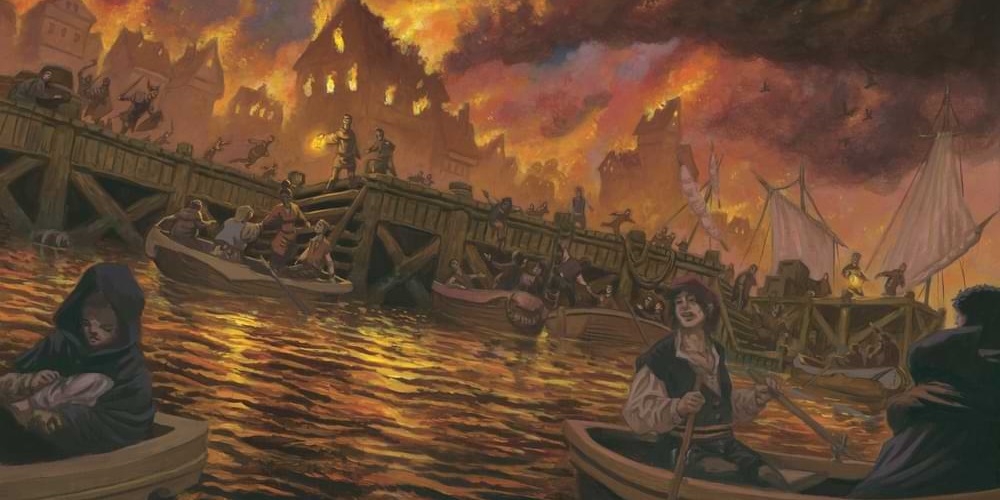If Knowledge is considered neutral, than so is "preserving free will."
This seems a non-sequitur to me.
According to Gygax's PHB (p 33) and DMG (p 23), the following things are valued by Good:
[T]he tenets of good are human rights, or in the case of AD&D, creature rights. Each creature is entitled to life, relative freedom, and the prospect of happiness. Cruelty and suffering are undesirable.
[C]reatures of [chaotic good] alignment view freedom and the randomness of action as ultimate truths, they likewise place value on life and the welfare of each individual. Respect for individualism is also great.
To the chaotic good individual, freedom and independence are as important to life and happiness.
Creatures of [neutral good] alignment see the cosmos as a place where law and chaos are merely tools to use in bringing life, happiness, and prosperity to all deserving creatures.
[C]haracters of lawful good alignment follow these precepts [of law and order] to improve the common weal. Certain freedoms must, of course, be sacrificed in order to bring order; but truth is of highest value, and life and beauty of great importance. The benefits of this society are to be brought to all.
Creatures of lawful good alignment . . . are convinced that . . . good is best defined as whatever brings the most benefit to the greater number of decent, thinking creatures and the least woe to the rest.
We can see that there is a range of viewpoints here, about the permissibility of social/interpersonal trade-offs in welfare (LG accepts these, CG doesn't), and also about how to rank the values. But there is unanimity that life, wellbeing and happiness are important. Truth is also important, especially to the LG. There is a notion of "decent" or "deserving" creatures having entitlements that others don't - this is where the scope exists in Good alignment for inflicting punishment, and/or for using violence in self-defence and defence of others.
Notice that
knowledge is not mentioned here at all, but
freedom is. Even the LG don't reject freedom as a value; they just rank it differently from the CG.
In the PHB (p 33) and DMG (pp 23-24) we are also told that Evil rejects these values:
Evil, on the other hand, does not concern itself with rights or happiness . . .
Laws and order, kindness, and good deeds are disdained [by the chaotic evil].
The chaotic evil creature holds that individual freedom and choice is important, and that other individuals and their freedoms are unimportant if they cannot be held by the individuals through their own strength and merit.
[Neutral evil] holds that . . . whatever means are expedient can be used by the powerful to gain and maintain their dominance, without concern for anything.
[L]ife, beauty, truth, freedom and the like are held as valueless, or at least scorned [by lawful evil creatures].
The Evil reject other-regard as any constraint on their own conduct. Kindness and good deeds are disdained. Freedom of others is unimportant. They scorn beauty and truth, and lack concern for anything beyond themselves.
In the mythology of DL, it is the Neutral gods who bestowed free will on mortals (DL Adventures, p 8). But that does not mean it is not a good thing.
Taking away someone's agency to go and do what they want is removing their free will.
This is not the only treatment, and probably not the standard one. I don't think any of the mainstream theorists of punishment - Von Hirsch, Hampton, Duff, etc - take the view that physical detention of a person takes away their free will. Nor does US criminal law, which does not treat
being imprisoned as sufficient evidence of a lack of voluntariness in conduct.
The existentialists, whose account of free will is quite different from the contemporary mainstream punishment theorists, also don't hold that physical detention removes free will.
Off the top of my head I can't think of a philosopher who has defended the view you set out in your post.
Either:
1) God exists and make the rules, in which case they get to say what "good" and "evil" are, and can do whatever they like to anyone who gives them the brush off; or
2) God does not exist. No one makes the rules, and no one defines an objective measure of "good " and "evil".
Either way, you are wrong.
Both your (1) and (2) are highly contentious.
Plato set out to refute your (1) in the Euthyphro. The only major philosopher I know who disagrees, and thinks that God has authority to define good and evil, is Hobbes.
As far as your (2) is concerned, the mainstream view in contemporary English-language philosophy is that value is objective, and that this has nothing to do with the question of whether or not God exists. There are significant proponents of the contrary view, but it turns out to face many technical challenges that are not trivial to deal with (eg if value is not objective, then it seems to follow that statements about what is good or bad are neither true nor false. But statements about what is good or bad can figure in sentences containing truth-conditional operators like
or and
and, and can figure in inferences and arguments that seem to be valid in just the same way as ordinary inferences and arguments, involving truth-valued statements, are).


 www.dndbeyond.com
www.dndbeyond.com


